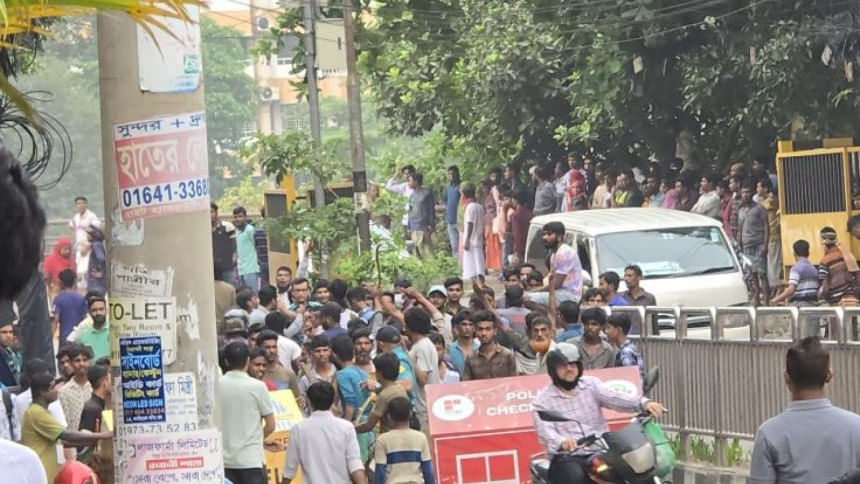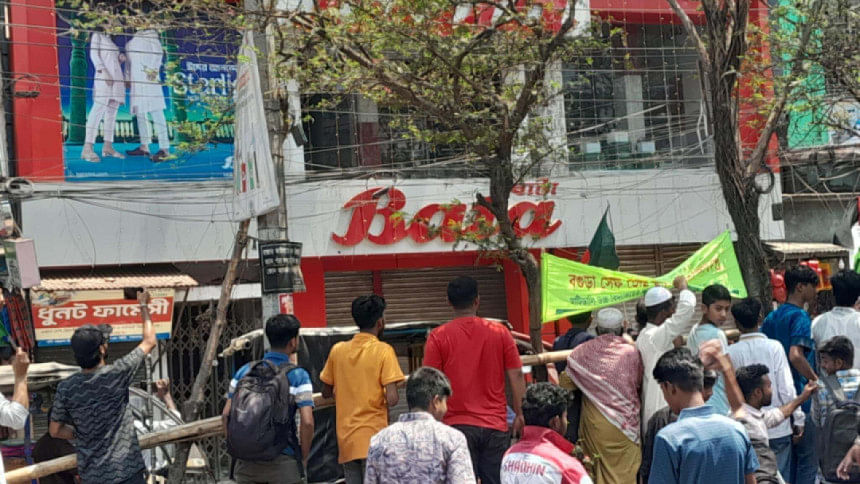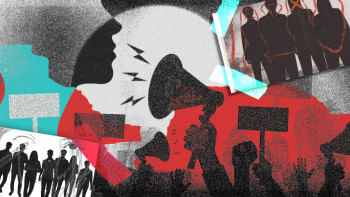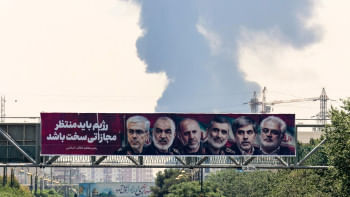Our propensity for violence and the elements that foster it

On April 20, 2025, battery-run rickshaw drivers took to the streets to protest against the decision to ban their vehicles in Dhaka's Gulshan and Banani areas. Soon after, tensions flared with clashes breaking out between battery-run rickshaw drivers and the locals, pedal rickshaw pullers, and ride-sharing motorcyclists. Based on the reports that have come out following the altercation, it appears that this entire affair has devolved into a "he said, she said" situation, with all parties claiming that they did not provoke the clashes—they just acted to defend themselves. The following day, protests escalated again. This time, there were reports of the protesting drivers threatening pedestrians who attempted to take photos of or record the incident unfolding. Additionally, the scuffle with pedal rickshaw pullers intensified as the protesters threw two pedal rickshaws off the bridge into Gulshan Lake.
Earlier this month, when demonstrations in solidarity with Gaza poured out across the country, the movement garnered attention for all the wrong reasons. It wasn't the sheer volume of people who turned up that shaped the headlines, but rather a fraction of those "participating." With the rallies fizzing into chaos, it was the looting and vandalism that captured most of our attention. Not only did these abhorrent acts divert attention away from the very issue the protests were for, but they also undermined the collective effort that the rest of the nation displayed.
A month before that, records of two young women being attacked in Lalmatia by an enraged mob pervaded much of our discourse and psyche. What followed was a barrage of more reports of violence against women. In between and beyond, plenty more has happened. One might claim that too much has happened. Yet, it would be wrong to claim that these acts have only taken place in the past several months since the interim government took charge. It did, however, feel like they happened more frequently. Moreover, it would be dismissive to claim that a collective fear did not grip the nation. After all, we are a nation in transition. Any sign of instability threatens grave consequences.
However, as we look back at the incidents and scrutinise many others that have grabbed the headlines—not just in the past several months but in the many years prior as well—an underlying pattern emerges. The pattern I am referring to not only binds the many events that have plagued the conscious collective but, in many ways, is a reflection of it. What I am alluding to is our inclination for violence. Many traits may characterise this irrational phenomenon. It may be described as being delirious, damning, and downright despicable. But if all we do is condemn these attacks, without fully fleshing out what compels them to transpire in the first place, then the thoughts we spare for the victims are performative at best, and dismissive of their struggles at worst.

What triggers violence cannot just be explained by the rule of the former regime and its subsequent overthrow. To make sense of it, we must turn to the values, or rather the lack of them, that the country has survived with for far too long. Our core values, the four principles of our constitution, haven't been used to create organisations that promote them. Instead, these values have been distorted and blatantly overlooked. Without institutions built on the foundation of state values, how can we expect to undertake a long-term project of nation-building? On what basis is it meant to be sustained and directed? What core beliefs are supposed to resonate across generations?
Despite our history, all these questions are devoid of a solid answer. We have been left to fend for ourselves based on the whims of our politicians, most of whom have rarely, if ever, attempted to rectify or even address it. Rather, they have continued to perpetuate a political culture of control and dominance and leveraged it to accumulate personal wealth. The cycle has repeated far too many times because the system here has been rife with corruption for decades. It has cultivated a culture of impunity, not accountability, essentially warping the law and forcing functionality to completely crumble. Even when due process is taken, it is not done to uphold the law or serve justice but for retribution or to assert dominance. Inevitably, the impulse that one might get away with their wrongdoing trickles down, thus forging the culture of impunity as the norm.
Nonetheless, the malfunctioning of our legal system doesn't exist in isolation. Its roots, which are a result of a lack of a value system, are entrenched deep in our education system as well. Without a set of values to dictate the curriculum, what core principles are meant to be instilled in and embodied by young minds? While we can debate the implications and impacts of imparting a few rigid values on students, we cannot deny that these principles can at least act as references to mould their thinking around. Additionally, what is indicative of the state of our educational institutions is the fact that elected politicians themselves tend not to send their children to local government schools, opting instead for private English medium schools or schools abroad.
What, then, does that say about the state of our educational institutions? It screams of the giant rift between politicians and their constituencies. In the process, it also lays bare the source of scarcity that the rest of the nation has to make do with. The dynamic this fosters is one of resentment, enforcing the idea that not only is there no one looking out for them, but also that these institutions are doing nothing to bolster their interests. As a result, people take matters into their own hands and take drastic, often poorly thought-out measures that prove to be counterproductive.
With crumbling institutions built on fragile principles, power has, time and again, been co-opted. Is it then any wonder that Bangladesh has been marred by mindless violence for as long as most of us can remember? The sources of people's apathy and collective restlessness can be attributed to a system that has continued to fail them. A withering system may amplify and echo their troubles. However, it most certainly underpins that while values may be abstract, their weight is tangible.
Abir Hossain is a journalist. He can be reached at [email protected].
Views expressed in this article are the author's own.
Follow The Daily Star Opinion on Facebook for the latest opinions, commentaries and analyses by experts and professionals. To contribute your article or letter to The Daily Star Opinion, see our guidelines for submission.

 For all latest news, follow The Daily Star's Google News channel.
For all latest news, follow The Daily Star's Google News channel. 










Comments